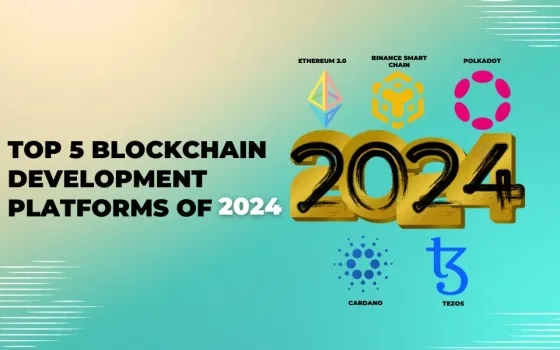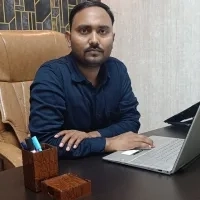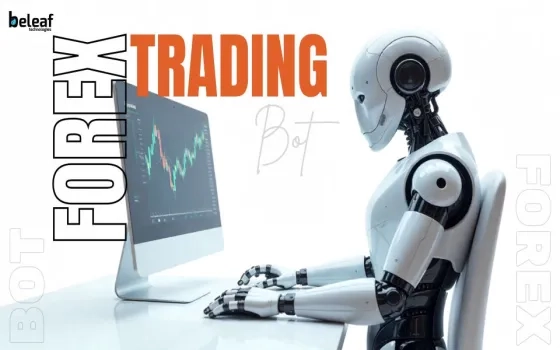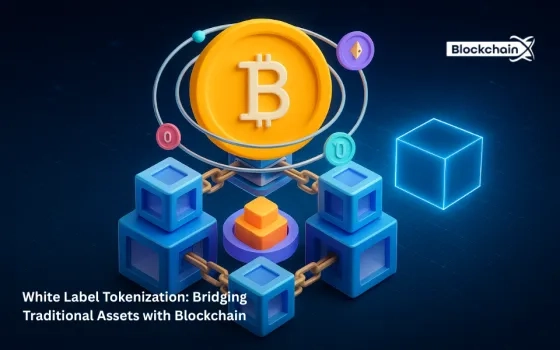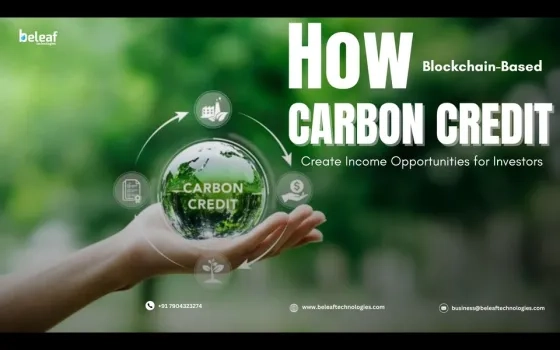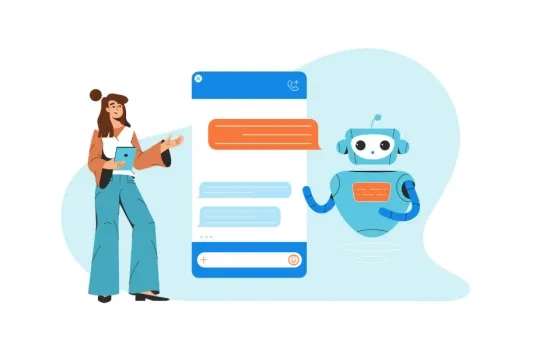Introduction
In the rapidly evolving landscape of technology, blockchain has emerged as a revolutionary force, and choosing the right development platform is crucial for success in this dynamic environment. As of 2024, several platforms have proven themselves as leaders in blockchain app development company offering innovative solutions to developers worldwide.
-
Overview of Blockchain Development Platforms
Blockchain application development platforms serve as the foundation for creating decentralized applications and smart contracts. In 2024, Ethereum will continue to dominate, known for its robust ecosystem and smart contract capabilities. Binance Smart Chain follows closely, offering high-speed and low-cost transactions. Cardano stands out for its focus on security and scalability, while Polkadot's interoperability features make it a versatile choice. Solana, with its high-performance blockchain app development, completes the top-tier lineup of platforms.
-
Significance of Choosing the Right Platform
The significance of selecting the appropriate blockchain development platform cannot be overstated. The chosen platform dictates factors such as scalability, security, transaction speed, and interoperability – all critical aspects in the success of a blockchain development project. Hire blockchain developers must carefully evaluate their project requirements and objectives to align them with the strengths and features offered by each platform. Making the right choice ensures not only the efficient development of decentralized applications but also long-term sustainability and growth in the ever-evolving blockchain landscape of 2024.
Criteria for Evaluation
The scalability of a blockchain development platform is a pivotal factor, in determining its ability to handle a growing number of transactions without compromising performance. Evaluating a platform's scalability involves assessing its capacity to scale horizontally or vertically, ensuring it can support a broad range of applications and user interactions while maintaining efficiency.
Security is paramount in the blockchain app development agency. An effective evaluation considers the platform's consensus algorithm, cryptographic protocols, and mechanisms for preventing vulnerabilities such as 51% attacks. Robust security measures ensure the integrity and immutability of the blockchain development instilling confidence in users and stakeholders.
-
Flexibility and Customization
A top-tier blockchain development platform provides developers with flexibility and customization options. This involves examining the platform's support for smart contracts, the ease of creating custom tokens, and the ability to tailor the consensus mechanism. A platform that accommodates diverse development needs empowers creators to bring unique and innovative ideas to life.
-
Developer-Friendly Features
The user-friendliness of a blockchain development platform significantly impacts its adoption and success. Key aspects include the availability of comprehensive documentation, intuitive APIs, and development tools. Platforms that prioritize user experience enable developers to efficiently navigate the development process, reducing barriers to entry and fostering a vibrant developer community.
-
Community Support and Adoption
The strength of a platform's community is indicative of its success and future potential. A thriving developer community enhances collaboration, knowledge-sharing, and innovation. Evaluating community support involves considering factors such as the number of active developers, open-source contributions, and the overall adoption rate. Platforms with a robust community are more likely to evolve and adapt to emerging trends in the blockchain space.
Ethereum 2.0

Ethereum 2.0, also known as Eth2 or Serenity, represents a significant evolution of the Ethereum blockchain. Introduced to address scalability and energy efficiency concerns, it aims to transition from a proof-of-work blockchain development (PoW blockchain development) to a proof-of-stake blockchain development (PoS blockchain development) consensus mechanism. This upgrade unfolds in multiple phases, marking a paradigm shift in Ethereum's architecture and performance capabilities.
-
Upgrades and Enhancements
Ethereum 2.0 introduces several notable upgrades and enhancements. The transition to PoS reduces the environmental impact, as it no longer relies on energy-intensive mining. Additionally, the introduction of shard chains enhances scalability by allowing parallel processing of transactions, significantly increasing the overall network capacity.
-
Smart Contract Capabilities
Smart contract capabilities remain a cornerstone of Ethereum 2.0. The upgrade maintains and improves upon Ethereum's prowess in executing self-executing contracts with predetermined rules. The evolution to Ethereum 2.0 ensures that smart contracts continue to play a central role in the decentralized applications (DApps) ecosystem while benefitting from the enhanced scalability of the new architecture.
Ethereum 2.0's success is deeply intertwined with its community and ecosystem. The Ethereum community, known for its vibrant and passionate contributors, actively participates in the ongoing development, testing, and implementation of the upgrade. The broader ecosystem, comprising developers, decentralized application users, and blockchain enthusiasts, plays a pivotal role in shaping the adoption and success of Ethereum 2.0, underscoring the collaborative and decentralized nature of the Ethereum platform.
Binance Smart Chain

-
Introduction to Binance Smart Chain
Binance Smart Chain (BSC) emerges as a prominent blockchain platform introduced by the Binance cryptocurrency exchange. Launched to complement Binance Chain, BSC focuses on providing a robust infrastructure for decentralized applications (DApps) and smart contracts. With its native cryptocurrency, BNB (Binance Coin), BSC offers an alternative avenue for developers seeking high-performance blockchain application development solutions.
-
High Performance and Low Fees
BSC distinguishes itself through its emphasis on high performance and low transaction fees. The platform leverages a delegated proof-of-stake (DPoS) consensus mechanism, enabling faster block generation and quicker transaction confirmations. This efficiency, coupled with cost-effectiveness, appeals to developers and users alike, positioning BSC as a competitive choice for various blockchain applications.
-
Interoperability with Binance Chain
An essential feature of BSC is its interoperability with Binance Chain. This interoperability allows assets to be seamlessly transferred between the two chains, providing users with flexibility and facilitating a smooth transition between decentralized and centralized finance ecosystems. This interoperable nature enhances the overall utility and versatility of the Binance blockchain ecosystem.
BSC has gained substantial traction in the realm of decentralized applications (DApps) and decentralized finance (DeFi). Developers are drawn to the platform for its compatibility with the Ethereum Virtual Machine (EVM), simplifying the process of migrating existing Ethereum-based DApps to BSC. The platform's thriving DeFi ecosystem encompasses various projects, such as decentralized exchanges, lending protocols, and yield farming initiatives, contributing to BSC's growing prominence in the decentralized finance landscape.
Polkadot

-
Understanding Polkadot's Multi-Chain Network
Polkadot is a groundbreaking blockchain platform designed as a multi-chain network, fundamentally redefining the architecture of decentralized applications. Developed by Dr. Gavin Wood, one of Ethereum's co-founders, Polkadot introduces a relay chain that connects multiple parallel blockchains, or parachains, fostering interoperability and scalability. This innovative approach allows for a more flexible and adaptive blockchain ecosystem, enabling different blockchains to interact seamlessly.
-
Cross-Chain Compatibility
A distinctive feature of Polkadot is its emphasis on cross-chain compatibility. Through the relay chain, parachains on Polkadot can communicate and share information, creating a network where assets and data can move freely between chains. This cross-chain interoperability enhances the overall efficiency and utility of the Polkadot network, making it an attractive option for developers aiming to create interconnected and interoperable blockchain applications.
Polkadot prioritizes security through a unique shared security model. The relay chain provides a secure foundation for all connected parachains, offering them the benefit of Polkadot's collective security. This shared security approach enhances the overall resilience of the network, minimizing the risk of vulnerabilities and attacks. Polkadot's commitment to robust security features ensures the safety and integrity of the entire multi-chain ecosystem.
-
Notable Projects on Polkadot
Polkadot has fostered a vibrant ecosystem with a range of notable projects spanning diverse sectors. Examples include Acala, a decentralized finance (DeFi) platform; Moonbeam, a smart contract platform compatible with Ethereum; and Chainlink, which provides decentralized oracle services. These projects showcase the versatility and innovation that Polkadot's multi-chain network facilitates, attracting developers and projects eager to explore the potential of a more interconnected and scalable blockchain environment.
Cardano

-
Cardano's Approach to Blockchain Development
Cardano, a blockchain development platform founded by Ethereum co-founder Charles Hoskinson, distinguishes itself through a research-driven and academically rigorous approach to blockchain development. With a focus on scalability, sustainability, and interoperability, Cardano aims to provide a secure and inclusive infrastructure for the decentralized future. The platform's development is guided by principles rooted in peer-reviewed academic research, ensuring a robust foundation for its blockchain protocols.
-
Ongoing Developments and Upgrades
Cardano maintains a commitment to continuous improvement, reflected in its ongoing developments and upgrades. The platform follows a phased approach, with key milestones such as Byron, Shelley, Goguen, and upcoming phases like Basho and Voltaire. These upgrades introduce various features, including enhanced decentralization, smart contract functionality, and governance mechanisms, showcasing Cardano's dedication to evolving with the ever-changing landscape of blockchain technology.
-
Sustainability and Scalability
Cardano places a strong emphasis on sustainability and scalability, recognizing the importance of long-term viability. The platform utilizes a proof-of-stake (PoS) consensus mechanism, Ouroboros, designed to ensure energy efficiency while maintaining network security. This approach enhances sustainability by reducing the environmental impact associated with blockchain operations. Furthermore, Cardano's commitment to scalability is evident in its efforts to optimize transaction throughput and enhance the overall efficiency of the network.
-
Smart Contracts on Cardano
Cardano's Goguen era marked a significant milestone with the introduction of smart contract capabilities. This expansion allows developers to create decentralized applications (DApps) and execute programmable contracts on the Cardano blockchain. Leveraging the native programming language, Plutus, developers can build secure and scalable smart contracts. The addition of smart contract functionality positions Cardano as a comprehensive blockchain platform, poised to support a wide range of decentralized applications and innovative use cases.
Tezos

Tezos, a self-amending blockchain platform, stands out for its unique approach to governance and flexibility. Founded on the principles of on-chain governance and formal verification, Tezos enables protocol upgrades without requiring hard forks. This adaptability fosters a more sustainable and evolutionary ecosystem, where stakeholders actively participate in the decision-making process for the platform's future development.
-
Self-Amendment and Governance
Tezos' innovative self-amendment mechanism allows the protocol to evolve through on-chain governance. Through a built-in mechanism, stakeholders, including token holders, can propose and vote on amendments to the protocol. This democratic governance model ensures that the Tezos network can adapt to emerging challenges, implement improvements, and remain relevant in the rapidly evolving blockchain landscape.
-
Smart Contracts and Decentralized Applications (DApps)
Tezos supports the creation of smart contracts and decentralized applications (DApps), providing developers with a versatile platform for building blockchain-based solutions. With its smart contract language, Michelson, and an ecosystem that includes tools like SmartPy and Smart Contracts in Reasoning Languages (Smart-RE), Tezos empowers developers to create secure and efficient decentralized applications tailored to specific use cases.
-
Community and Developer Engagement
Tezos boasts an active and engaged community, with a focus on inclusivity and collaboration. The platform encourages developer participation through grants, hackathons, and educational initiatives, fostering innovation within the Tezos ecosystem. This community-driven approach contributes to the continuous development and improvement of the platform, as developers and stakeholders collaborate to enhance Tezos' capabilities and explore new possibilities in blockchain technology.
Conclusion
The top 5 blockchain development platforms – Ethereum 2.0, Binance Smart Chain, Polkadot, Cardano, and Tezos – showcase the diverse landscape of blockchain technology in 2024. Ethereum 2.0 stands out for its ongoing evolution towards scalability and sustainability, while Binance Smart Chain emphasizes high performance and low fees. Polkadot introduces a multi-chain network, Cardano adopts a research-driven approach, and Tezos features a unique self-amendment mechanism. When choosing a platform, factors such as scalability, security, flexibility, developer-friendly features, and community support play pivotal roles in ensuring a platform aligns with project requirements. Looking ahead, future trends in blockchain development are likely to include enhanced interoperability, advancements in consensus mechanisms, and a continued focus on sustainability, setting the stage for further innovation and growth in the dynamic blockchain landscape.



